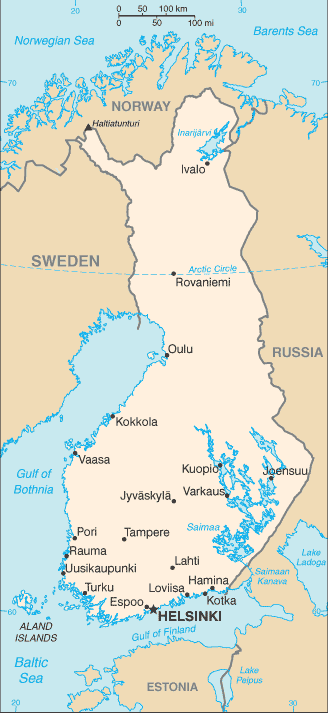Importing from Nigeria


Nigeria Country Profile
Official Name (Local Language) Federal Republic of Nigeria
Capital Abuja
Population 219,463,862
Currency Nigerian Naira
GDP $1,013.53 billion
Languages English; Hausa; Yoruba; Igbo; Fulani
Phone Dial In 234
Nigeria Exports Profile
Exports ($m USD) 34,900
Number of Export Products 359
Number of Export Partners 115

Nigeria Economic Statistics
Government Website | https://statehouse.gov.ng/ |
| Sovereign Ratings | https://countryeconomy.com/ratings/nigeria |
| Central Bank | Central Bank of Nigeria |
| Currency USD Exchange Rate | 383.5 |
| Unemployment Rate | 16.5% |
| Population below poverty line | 40.1% |
| Inflation Rate | 11.3% |
| Prime Lending Rate | 15.4% |
| GDP | $1,013.53 billion |
| GDP Pro Capita (PPP) | $4,900 |
| Currency Name | Nigerian Naira |
| Currency Code | NGN |
| World Bank Classification | Lower Middle Income |
| Competitive Industrial Performance | 116/138 |
| Corruption Perceptions Index | 154/180 |
| Ease of Doing Business | 131/190 |
| Enabling Trade Index | 127/136 |
Access trade, receivables and supply chain finance
We assist companies to access trade and receivables finance through our relationships with 270+ banks, funds and alternative finance houses.
Get StartedImporting from Nigeria
Nigeria is the second-biggest economy in Africa and one of the most populous countries in the world. Its main exports are oil and gas, nitrogenous fertilisers, and foodstuffs such as tobacco and cocoa. The country is the world’s 6th largest crude oil exporter, and over 90% of its exports are oil; however, it has few refinery facilities, so it imports most of its refined petroleum. The value of exports in Nigeria has increased significantly in the last decade and is expected to keep growing, especially as the country’s highly educated working-age population keeps expanding.
Macroeconomic measures enacted in early 2024, including a decrease of a petrol fiscal subsidy and reforms to unify FX markets and liberalise exchange rates, might lead to a short-term decrease in growth but should make the economy more stable and resilient in the long term. The government’s priority is to decrease inflation, diversify the economy, and reduce the number of people living in poverty, which is currently around half of the population. For now, however, the economy remains vulnerable to shocks in oil prices, caused among other things by the Ukraine war.
Nigeria is a democratic country with a strong electoral system and strong civil liberties. There is significant internal unrest, owing both to the inequality and poverty of some areas, and to extremist religious groups like Boko Haram which stage terrorist attacks and kidnapping almost everywhere in the country. Macroeconomic pressures have brought the somewhat stable situation to a boil in early 2024, with riots and strikes being staged in response to government reforms. Popular unrest has never spilled over into significant violence and is expected to further wane once the economic reforms have their intended effect; aid and investment from both the West and China will likely boost non-oil revenue and trade in the future.
Importing from Nigeria: What is trade finance?
Nigeria has the largest African economy – in close competition with South Africa – and a population of 180 million people. The country lies among the top 30 economies in the world based on GDP volume. The country depends on oil revenues and is therefore very vulnerable to variation in crude oil prices and production level. After growing around 5% between 2010 and 2014 and 2.7% in 2015, Nigeria’s economy contracted by 1.6% in 2016, affected by the drop in barrel price and the sabotage of oil infrastructures in the Niger Delta. Nigeria recovered from recession in 2017 (+0.8%), the growth being mainly driven by the recovery in oil production. This timid recovery should confirm in 2018 (growth of 2.1% of the GDP according to IMF), mainly supported by oil sector.
Chart Showing GDP Growth Compared to rest of world
GDP Composition for Nigeria
Agriculture
21.1%
cocoa, peanuts, cotton, palm oil, corn, rice, sorghum, millet, cassava (manioc, tapioca), yams, rubber; cattle, sheep, goats, pigs; timber; fish
Industry
19.4%
crude oil, coal, tin, columbite; rubber products, wood; hides and skins, textiles, cement and other construction materials, food products, footwear, chemicals, fertiliser, printing, ceramics, steel
Services
59.5%
Map
Top 5 Exports Partners
| Country | Trade | % Partner Share |
| India | 5,241 | 15.02 |
| Spain | 3,796 | 10.88 |
| Netherlands | 2,988 | 8.56 |
| South Africa | 2,654 | 7.60 |
| China | 1,766 | 5.06 |
Top 5 Exports Products
| Export Product | Number |
| Petroleum oils and oils obtained from bituminou | 81.1% |
| Natural gas, liquefied | 13.9% |
| Petroleum gases and other gaseous hydrocarbons | 0.4% |
| Petroleum gases and other gaseous hydrocarbons, | 0.4% |
| Cocoa beans, whole or broken, raw or roasted | 0.4% |
Local Partners
- All Topics
- Nigeria Trade Resources
- Export Finance & ECA Topics
- Local Conferences



















